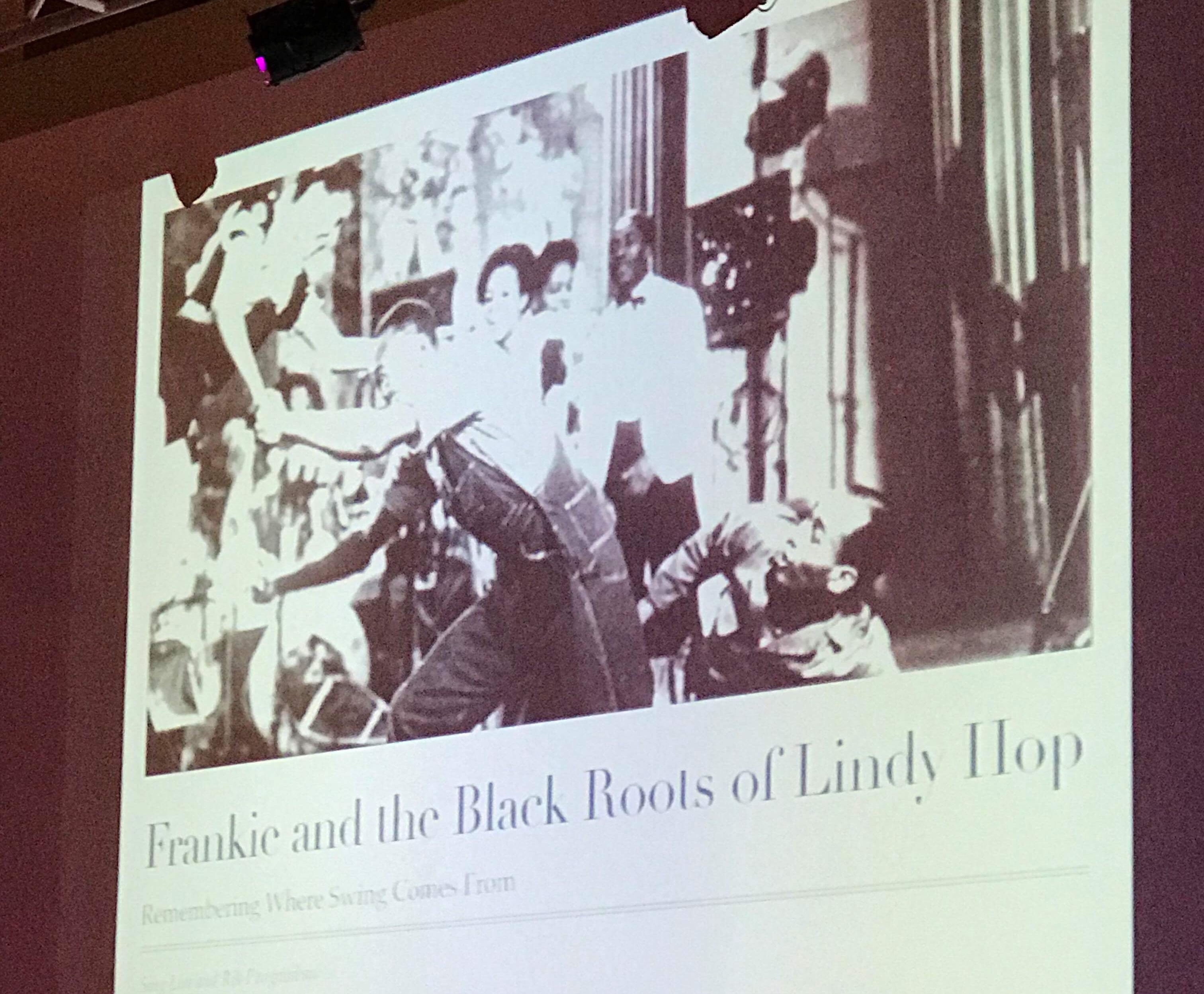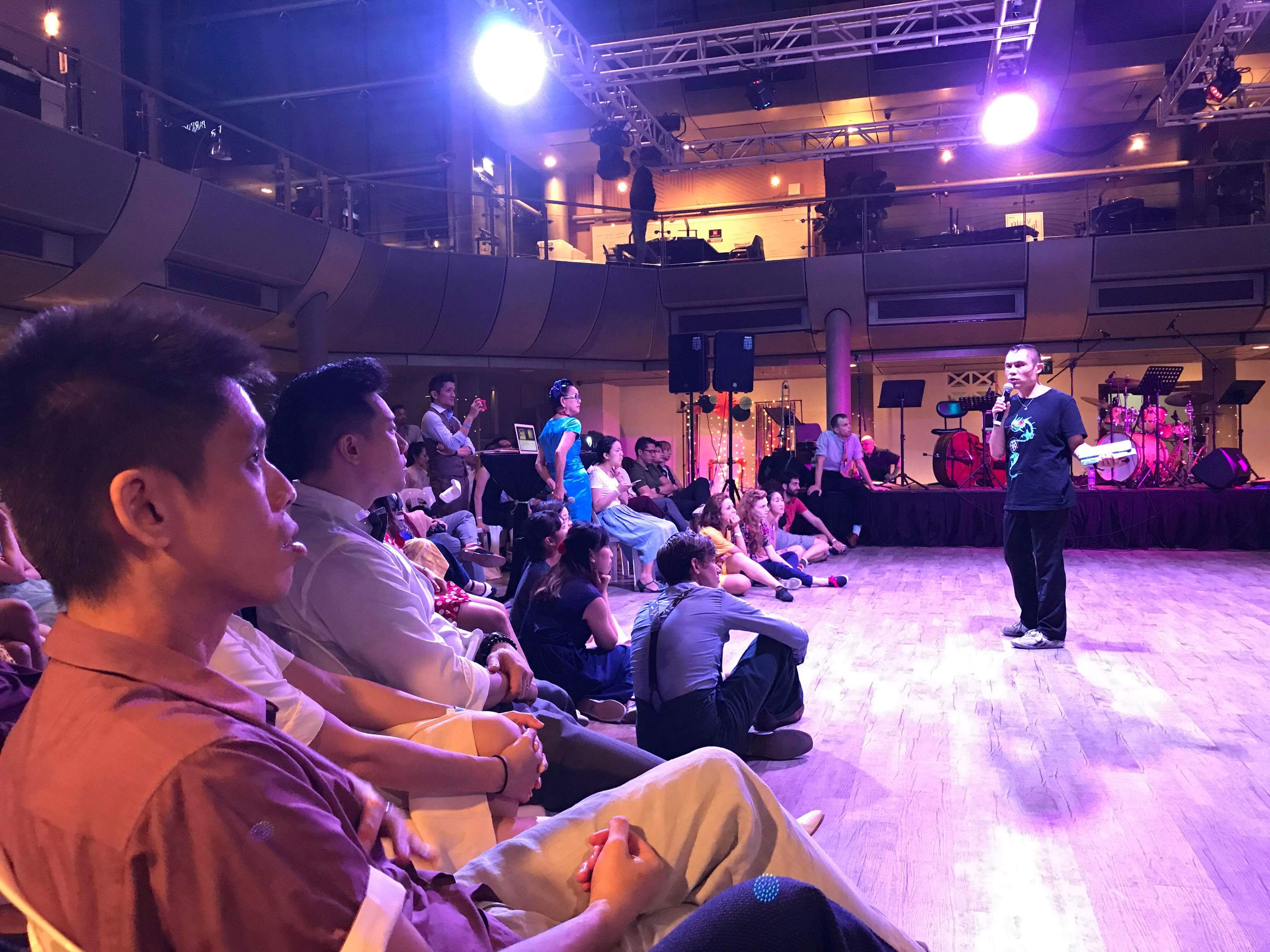This Saturday night, my friend Sing Lim and I were scheduled to give a presentation at the World Lindy Hop Day event in Singapore on “Frankie Manning and the Black Roots of Lindy Hop”. There were about 75 dancers and musicians there from all across Asia.
A few minutes before we were to speak, Sing and I checked in with each other.
“So, the Harlem Hot Shots actually covered a lot of the stuff we were going to talk about when they presented about Frankie and his history. Do you think we still need to do our talk?” Sing asked me.
Sing had a point. It would be easier to just not give our talk, which I was feeling anxious and uncertain about.
“I think it’s good that the Hot Shots gave their perspective,” I replied. “What we have to share is broader and still important for people to know about.”
A couple of minutes later we were on!
It didn’t go perfectly, honestly. There were lots of technical snafus. I forgot to talk about major chunks of content. Our flow could have been a lot tighter.
But I think we managed to communicate the critical topics we wanted to cover:
- the importance of acknowledging the Black pioneers who created and developed this dance,
- highlighting the cultural context of racism and oppression that those Black artists were working within,
- and providing signposts for how the audience could continue their own learning.
A few of the participants came up to us afterwards and thanked us for putting the dance in this perspective for them.
I honestly can not imagine the challenge of being a teacher or organizer in Vietnam, China, or Korea and trying to get across to my fellow dancers the complicated issues of race, class, and power in America that are enmeshed into the story of lindy hop. I’m so encouraged by the teachers and organizers I talked to in Singapore who are honestly trying to get the fuller picture, like Sing in Singapore and Zeng and Suzy in Beijing. I’m hoping we helped those who were interested to get some direction and encouragement to keep shining a light on these issues.
Talking about racism and oppression at a dance event is awkward and difficult. But the alternative of sweeping these issues under the rug and pretending they don’t exist is so much worse. That’s worth a few moments of anxiety and awkwardness.
UPDATE 6/5: I posted to Yehoodi a more detailed description of our talk. And notes from our presentation can be found here.

